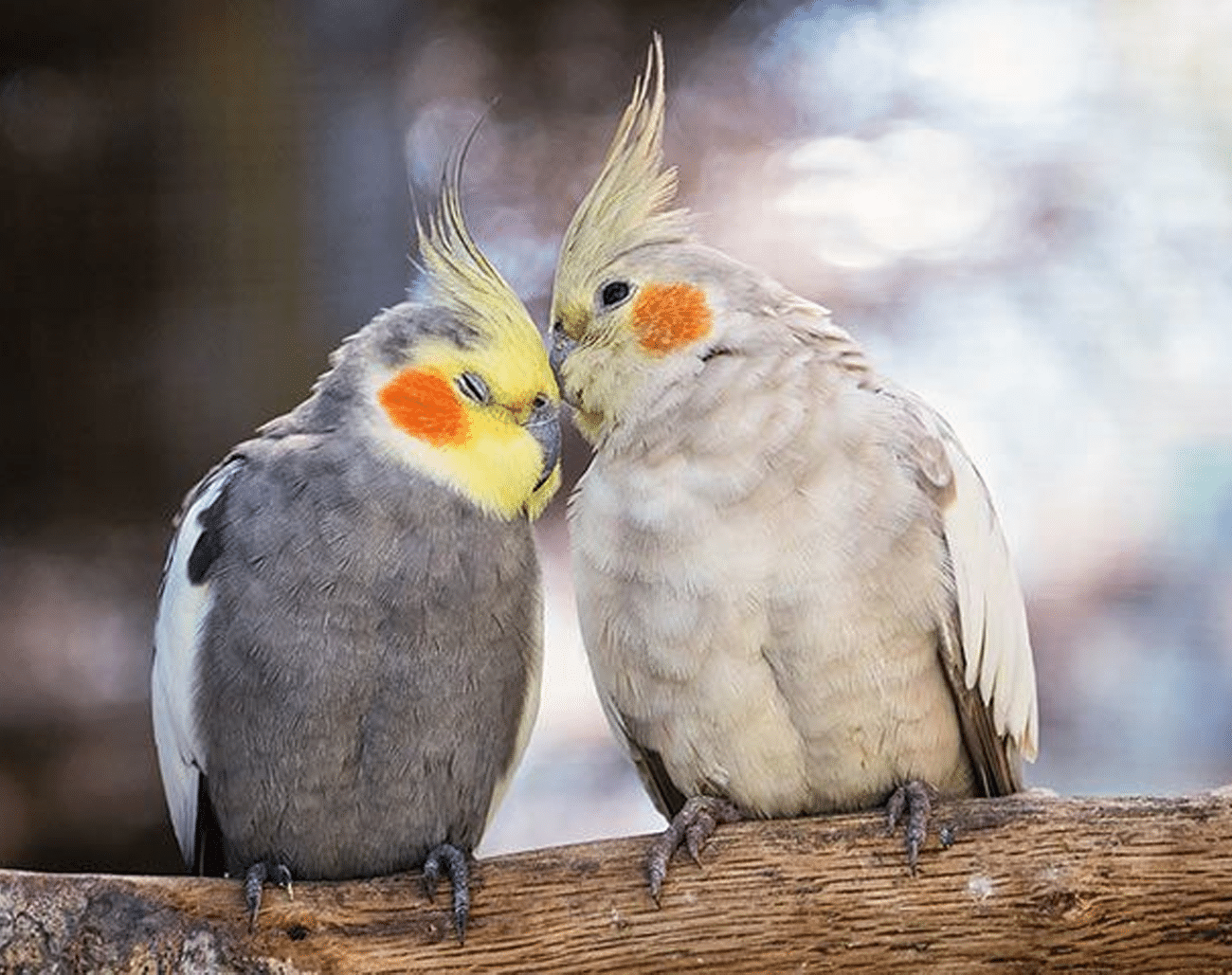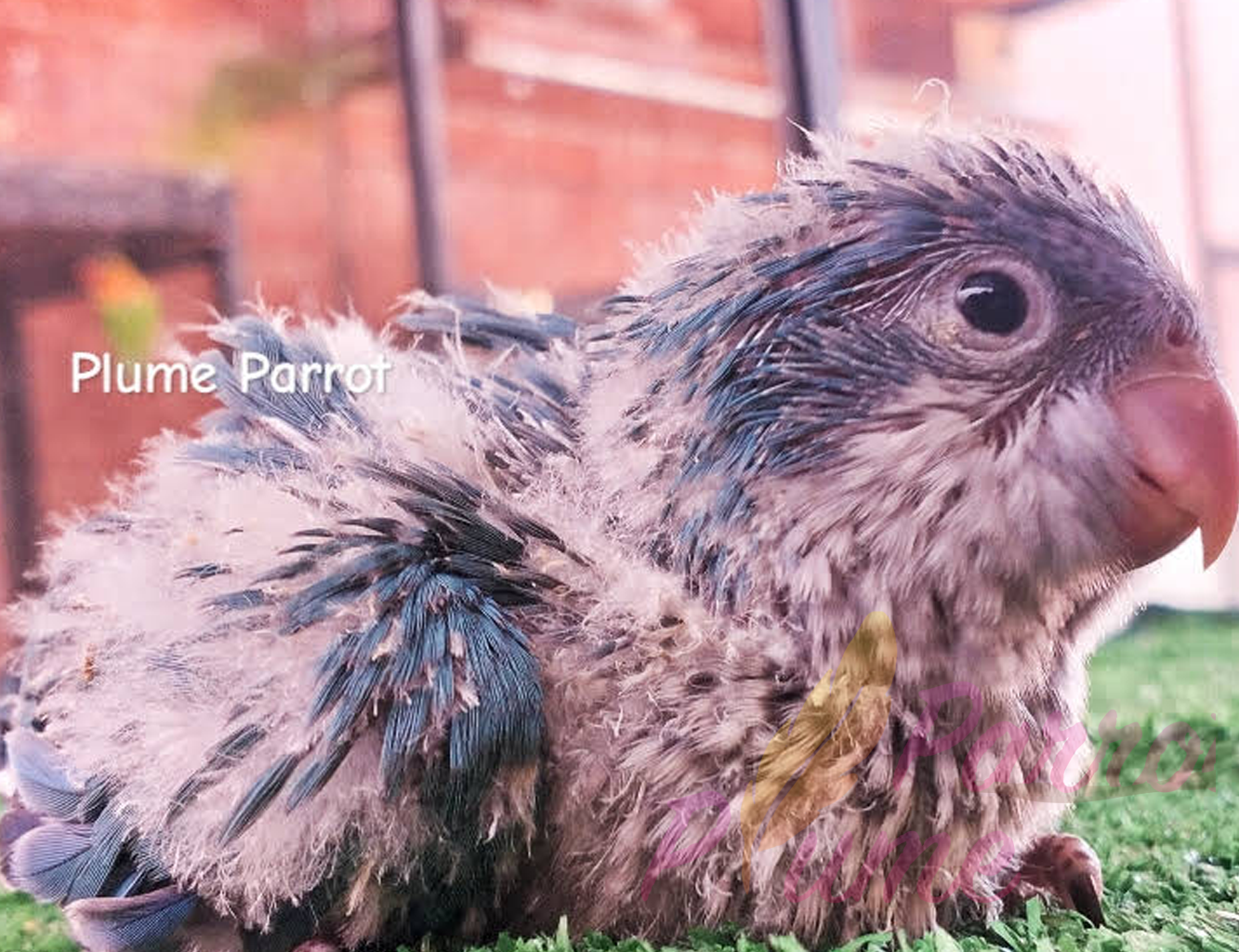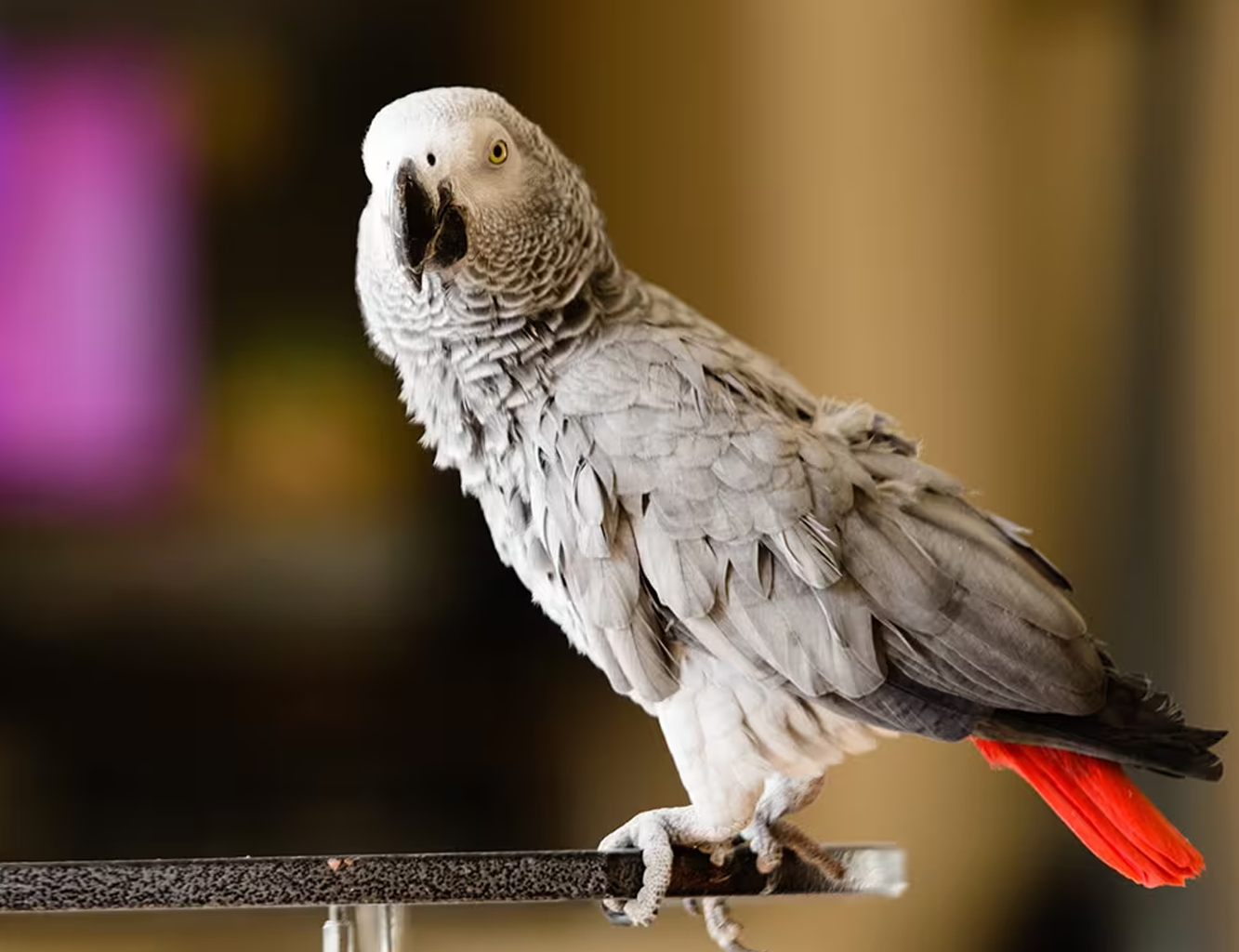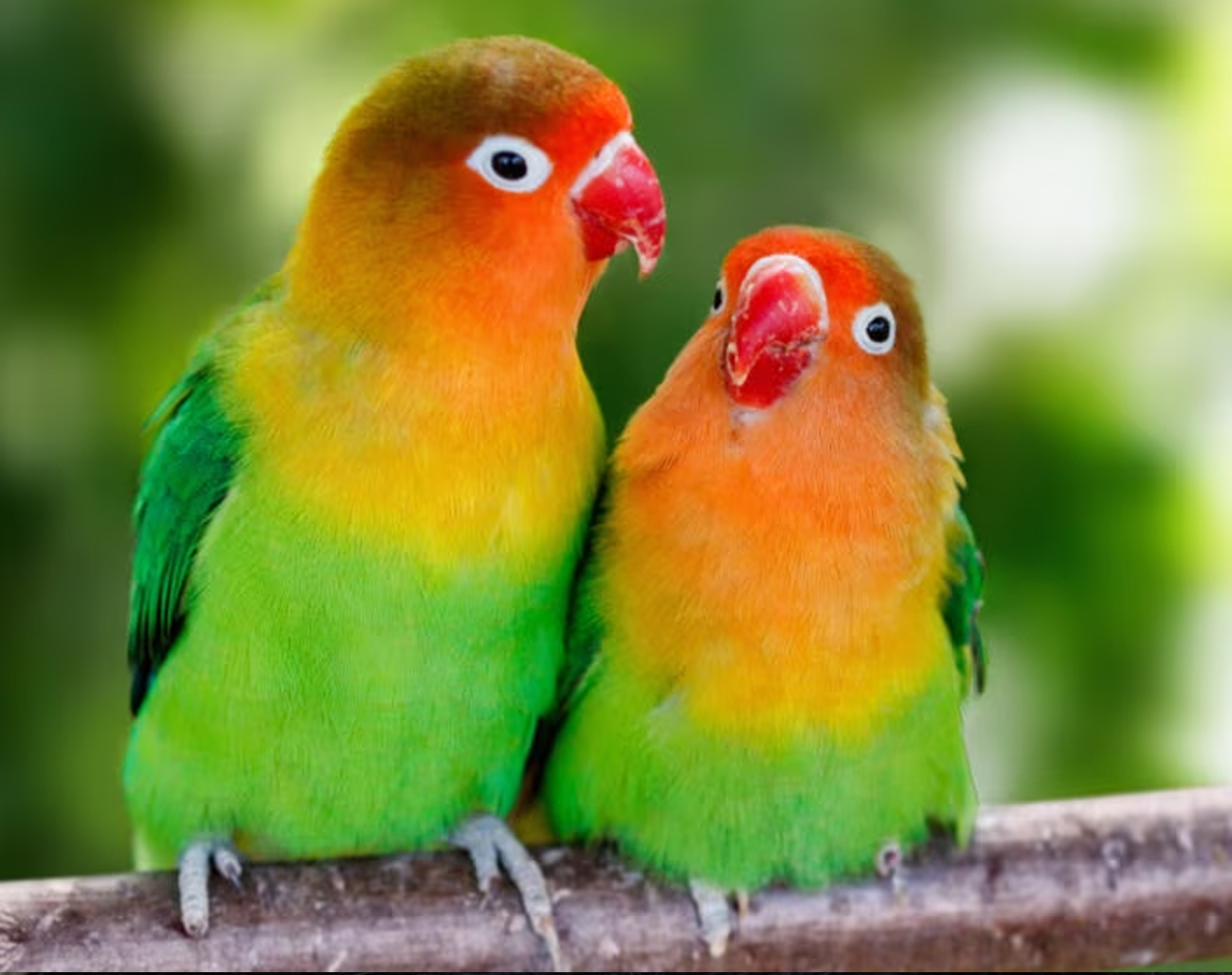Why are cockatiels so affectionate? Cockatiels are known for their loving nature, forming strong bonds with their owners and displaying affectionate behaviors. In this article, we’ll explore the reasons behind this and how you can nurture their loving personality.
The Origins of the Cockatiel’s Name
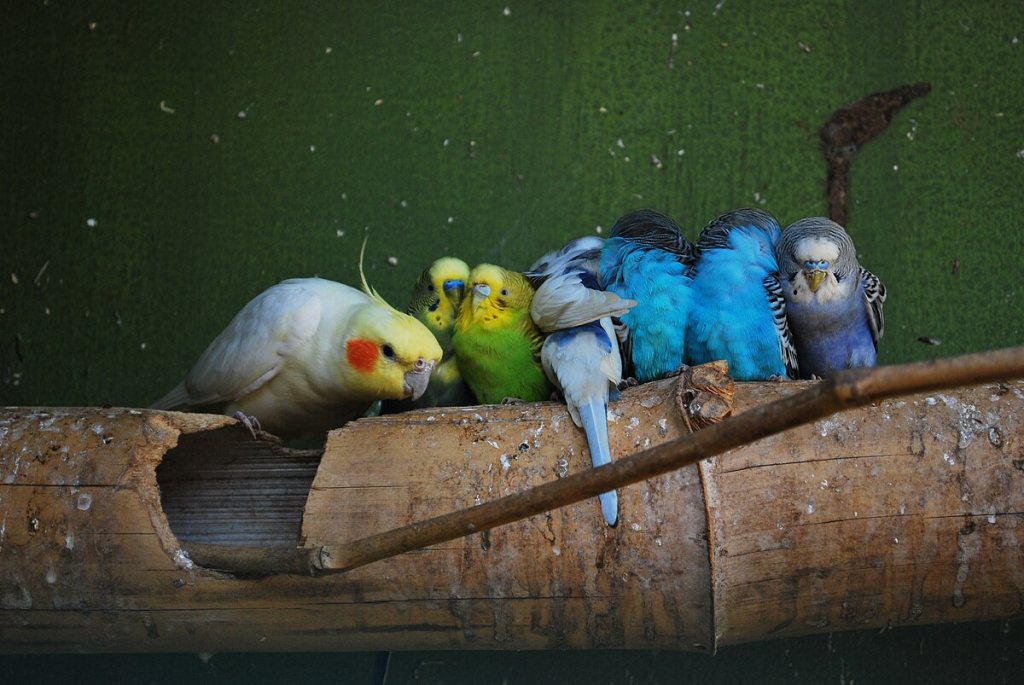
The name « cockatiel » comes from the Dutch word « kaketielje, » which is believed to be derived from the Portuguese word « cacatiel. » This name reflects the bird’s resemblance to a small cockatoo. Native to Australia, cockatiels were first discovered in the 18th century, and their name pays homage to their larger cockatoo relatives, with whom they share several characteristics, including their affectionate nature.
Affectionate by Nature: Understanding Cockatiel Behavior
Cockatiels are naturally social birds, which plays a significant role in their affectionate behavior. In the wild, they live in flocks and form strong bonds with their mates and flock members. This social nature translates well to life as a pet, where they often view their human caregivers as part of their flock.
- Bonding and Social Interaction Cockatiels are known for forming deep bonds with their owners. They thrive on social interaction and enjoy being part of daily activities. Whether it’s sitting on your shoulder, mimicking sounds, or just hanging out with you, cockatiels love to be in the company of their human companions.
- Mimicking and Communication Like many parrots, cockatiels are good at mimicking sounds and learning simple words. This ability is not just for show; it’s a form of communication that strengthens their bond with their owners. Their desire to mimic and interact shows their affectionate side, as they seek to connect and communicate with you.
- Physical Affection Cockatiels often show their affection through physical gestures. They may nuzzle against you, preen your hair, or gently peck at your fingers. These behaviors are signs of trust and affection, similar to how they would interact with other birds in the wild.
- Positive Reinforcement and Trust Building Positive reinforcement plays a crucial role in fostering a cockatiel’s affectionate behavior. When cockatiels receive consistent care, attention, and rewards for good behavior, they develop trust and become more affectionate. Trust is the foundation of their affectionate nature, making them one of the most loving bird species to keep as pets.
Cockatiel Care: Nurturing Their Affectionate Nature
To nurture a cockatiel’s affectionate nature, it’s important to provide them with the right environment and care. Here are some tips to help your cockatiel thrive:
- Spend Quality Time: Regular interaction is key to maintaining a strong bond with your cockatiel. Spend time talking, playing, and training them every day.
- Provide Mental Stimulation: Cockatiels are intelligent birds that need mental stimulation. Offer them toys, puzzles, and activities that challenge their minds.
- Maintain a Routine: Cockatiels feel secure with a consistent routine. Regular feeding times, play sessions, and bedtime routines help them feel safe and loved.
- Healthy Diet: A balanced diet is crucial for a cockatiel’s overall well-being, which directly impacts their behavior. Offer a variety of seeds, pellets, fruits, and vegetables to keep them healthy and happy.
Conclusion
Cockatiels are affectionate by nature, and their loving behavior is deeply rooted in their social instincts and the bonds they form with their human caregivers. Understanding the origins of their name and the reasons behind their affectionate nature can help you appreciate these charming birds even more. With the right care and attention, your cockatiel will continue to be a loving companion, bringing joy and warmth to your life.
Share this content:

